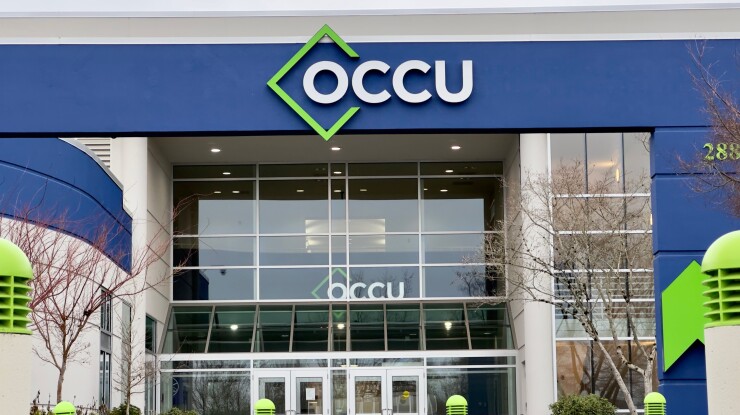
The
Oregon Community Credit Union in Eugene began exploring a four-day workweek in January after observing significant levels of stress and employees consistently calling out sick within the call center. Call volumes had spiked during the COVID-19 pandemic, prompting the credit union to nearly double the number of representatives on hand in order to minimize missed calls.
The $3.5 billion-asset credit union began testing a solution to burnout on March 13, offering every call center employee a paid day off each week. Call center employees now have a 32-hour workweek, with their hourly pay adjusted to keep them earning what they had for a full 40-hour week. Executives will closely monitor factors such as time taken to answer calls, staff absence frequency, missed calls and more over the three-month trial period.
"Call centers have always been a stressful environment and we've always dealt with more absenteeism and more turnover there. … My team and I believed that a lot of that is mental health and needing that extra day just to unwind and have a break from the nonstop calls," said Tracey Keffer, chief operating officer for OCCU.

The plan had immediate results; performance improved simply due to the anticipation of the four-day workweek, Keffer said.
"The week before we rolled this out, when we had told [employees] we're gonna start this, we could see the metrics already started to go up and people were preparing and really understanding their ownership of it," Keffer said.
Many credit unions have launched
On an international scale, many organizations that have adopted a modified work model for employees are seeing benefits outside of overall satisfaction levels.
According to a
Despite assumptions that a shorter week would impair the quality and quantity of work, productivity was one of the determining factors in a four-day workweek's success, said Wen Fan, associate professor in the department of sociology at Boston College and one of the lead researchers for the report.
"The most important thing is not necessarily time, but really your productivity. … If your productivity increases, you can get the same output or even higher within a shorter amount of time if [you] just eliminate the time spent on unnecessary meetings or tasks that generate little value onto your output," Fan said.
OCCU will review its findings at the end of the three-month trial period and will consider implementing the modified schedule in other divisions if it yields positive results.
"Whether it works or fails, we're excited that we're trying something innovative and creative for our employees and to try to solve a business problem outside of the box," Keffer said.






